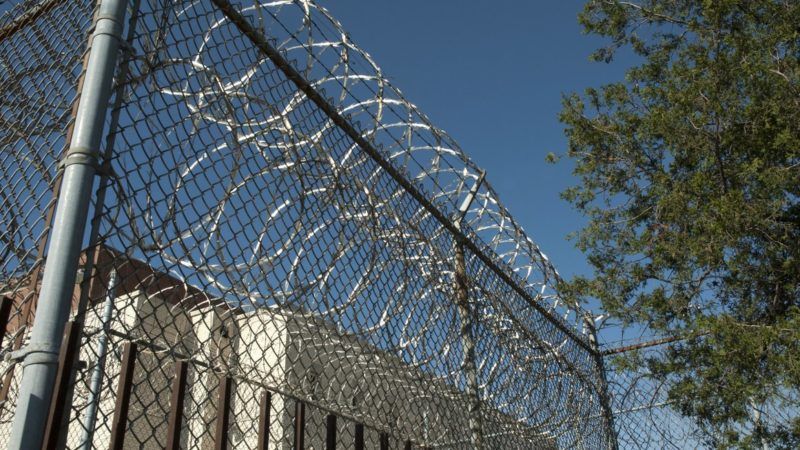Chicago Jail Inmate With COVID-19 Dies Shackled to His Hospital Bed
The Cook County jail is the country's largest known single source of new coronavirus infections.

The family of a Chicago jail inmate who died of coronavirus complications is suing the sheriff and Cook County for shackling him to a bed while he was fighting COVID-19.
Jeffrey Pendleton, 59, died last Sunday at a hospital in Cook County after testing positive for the disease a week earlier. Yesterday Pendleton's brothers filed a lawsuit in federal court, arguing that the county violated his constitutional rights by shackling him "by hand and foot" to the hospital bed as he fought to live, even though the jail had provided a 24-hour armed guard to make sure he didn't try to escape.
Pendleton is the first inmate of Cook County's jail system to die of the coronavirus. But he probably won't be the last. Earlier in the week, the Cook County jail became the country's largest known single source of new coronavirus infections. As of Thursday, 276 inmates and at least 115 staff members had tested positive for the coronavirus. And yet, as The New York Times notes, the authorities still haven't tested all of the jail's 4,500 inmates.
Cook County Sheriff Thomas Dart has been isolating himself from his family out of concern that he might expose them. He has established a quarantine area in the jail, and 21 prisoners are being treated at local hospitals.
Pendleton had a lengthy criminal history, according to the sheriff's department, involving 15 previous convictions. He became a registered sex offender after a 1997 criminal sexual assault conviction and was sentenced back then to 15 years. He was in jail now following a 2018 arrest for several charges, including armed violence and drug offenses.
The lawsuit by Pendleton's family, filed in the U.S. District Court for the Northern District of Illinois, seeks to stop the jail from shackling prisoners to beds while they're being treated for the coronavirus.
This is not the first or only coronavirus-related lawsuit that the Cook County jail faces. Attorney Stephen Weil last week filed a federal class action lawsuit against the jail. Noting the rapid acceleration of cases in an institution where inmates cannot consistently engage in social distancing, Weil wants a judge to order the release of prisoners whose age or preexisting health conditions put them at heightened risk of serious reactions to coronavirus infections. He also wants Cook County to implement better guidelines (like those the Centers for Disease Control and Prevention recommend) or to transfer inmates to safer facilities or other forms of custody.
This afternoon, researchers from Harvard Kennedy School, Harvard Law School, and the National Commission on Correctional Health Care released a detailed survey showing how the virus has been spreading in American jail and prison facilities. The problem, they note, isn't just that prisoners are trapped and unable to shield themselves from the disease; it's that jails are how COVID-19 is spreading into nearby communities.
Correctional staff, they point out, have a higher infection rate than inmates, and those staffers live in the outside community. Unsurprisingly, there is a correlation between infection levels among jail staff and infection levels where the staffers live. "States that have been especially hard hit by the pandemic, such as Michigan and New Jersey, are also locations where correctional officers are more affected," the report notes. "At the state level, reported correctional staff cases are also correlated with reported cases among inmates."
Mass incarceration is spreading coronavirus infections both outside the walls and within.


Show Comments (41)